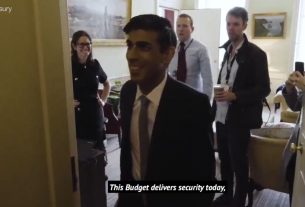Criminal barristers in England and Wales have narrowly voted to end their strike after accepting an improved pay offer from the government to raise legal aid fees by 15%.
The ballot ends the all-out strike by members of the Criminal Bar Association (CBA) that began on September 5 and has led to hundreds of delays in court cases.
Self-employed barristers – many of whom earn just £12,200 in their first three years – took industrial action seeking a 25% rise in legal aid fees. Voting in the ballot saw 57% of 2,605 CBA members accept the new deal and end their strike at 5pm on Monday (October 10).
A backlog in crown court cases has mushroomed from 40,000 in March 2020 to 60,000 in July this year and justice secretary Brandon Lewis said he is “glad the barristers have now agreed to return to work.”
Lewis called the decision a “breakthrough” but the CBA warned the justice system “still sits on a cliff edge” and that further strikes will take place if the government reneges on the deal.
Chair of the CBA, Kirsty Brimelow KC said: “The criminal justice system remains chronically underfunded. The onus is on government to properly fund it. Barristers’ acceptance of this deal is a first step in working with government for long-term reform. If the deal falls short in implementation, the CBA will ballot its members again on taking action.
“It should never have got to the stage of barristers taking action to force more funding into criminal legal aid.
“The CBA looks forward to a new and different approach by government to funding of barristers who deliver justice in the criminal law courts. We see this deal and its acceptance as a start.”
As well as the 15% rise in legal aid fees to “the vast majority of cases currently in the crown court” the government has pledged £3 million funding for case preparation, £4 million for prerecorded cross-examinations of vulnerable victims and witnesses, and a £5 million uplift for fees in youth courts.
The government said the deal means further investment in the criminal bar and solicitors worth £54 million.
Criminal barristers began industrial action in May over the rates they received for legal aid work before escalating to an all-out strike last month.
Lewis replaced Dominic Raab as justice secretary a day after the walkout started. Raab refused to meet the CBA for talks over the dispute but Lewis met them within a few days of taking over and said his priority since becoming justice secretary “has been to end this strike action and reduce delays for victims”.
He tweeted: “This breakthrough is a result of coming together and restarting what I hope to be a constructive relationship as we work to drive down the backlog and ensure victims see justice done sooner.”




